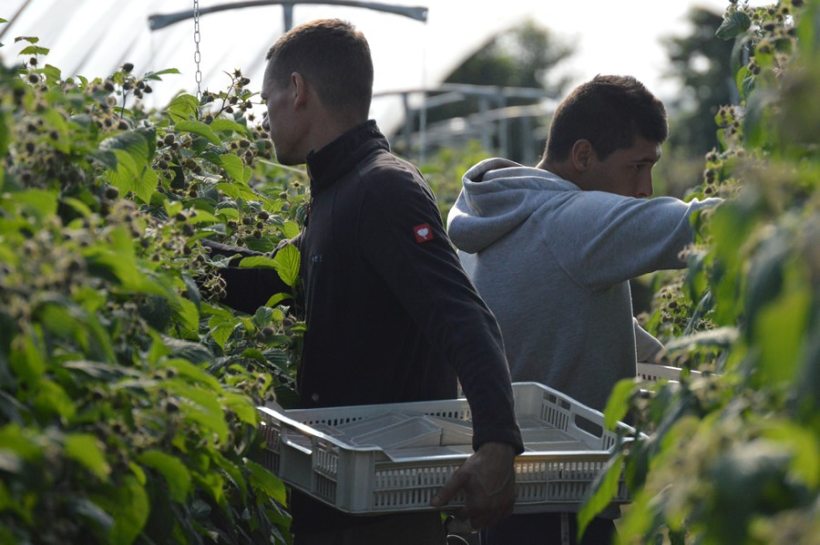Industry calls for Covid recovery visa as worker shortages bite

The food and farming sector has called for a new 12-month Covid-19 recovery visa to help alleviate the workforce shortages that are currently causing serious disruption across the whole supply chain.
In a new cross-industry report released today (27 August), the sector warns that the shortage is also significantly increasing the cost of getting food to the public.
The report has been sent to ministers, highlighting the impact the pandemic and the UK’s Brexit immigration policy is having on the sector’s ability to recruit key workers.
It highlights an average vacancy rate of 13 percent and estimates there are more than 500,000 vacancies across food and drink businesses.
In order to ensure continuity, quality and choice in UK food supply both in the immediate and medium-term, the report sets out ways government can help the industry overcome the current challenges.
These include the introduction of a Covid recovery visa, which would enable all involved throughout the supply chain to recruit critical roles, such as HGV drivers, as a short-term response to labour shortages.
It also calls for a commitment to a permanent, revised and expanded Seasonal Worker Scheme for UK horticulture to ensure it is flexible and large enough to meet the industry’s workforce needs.
And an urgent review by the Migration Advisory Committee (MAC) on the impact of ending free movement on the food and farming sector is needed, the report says.
NFU vice president Tom Bradshaw said that businesses throughout the supply chain in a wide variety of roles were 'really feeling the impacts' of the workforce shortages.
“Horticulture farms are struggling to find the workforce to pick and pack the nation’s fruit and veg, with some labour providers seeing a 34% shortfall in recruitment," he said.
“Farm businesses have done all they can to recruit staff domestically, but even increasingly competitive wages have had little impact because the labour pool is so limited – instead only adding to growing production costs.
“It is simplistic to argue that the end of furlough will see many more people meeting this shortfall, but furloughed workers are concentrated in urban areas and not where many agri-food roles are located.
"A solution to this crisis will need the right people with the right skills and training available in rural areas where many roles are based."
A short term Covid recovery visa, alongside a permanent Seasonal Workers Scheme, would be an effective and a vital route to help the needs of the industry, Mr Bradshaw said.
It would also give the sector time to invest in the skills and recruitment of the domestic workforce, helping to provide long-term stability.
The Food and Drink Federation’s chief executive, Ian Wright said the report made it 'crystal clear' that the current shortages were caused by a 'multitude of structural factors beyond those created by Covid-19 and the end of the Brexit transition period'.
“The recommendations set out within this report, including the Covid visa and measures to support domestic training and skills development, provide industry and government with highly practical solutions.
"They will ensure that the food supply chain continues to thrive with a strong and skilled workforce," Mr Wright said.
The report was produced by Grant Thornton on behalf of groups such as the Agricultural Industries Confederation, Dairy UK, National Pig Association, Road Haulage Association and British Poultry Council, among others.








